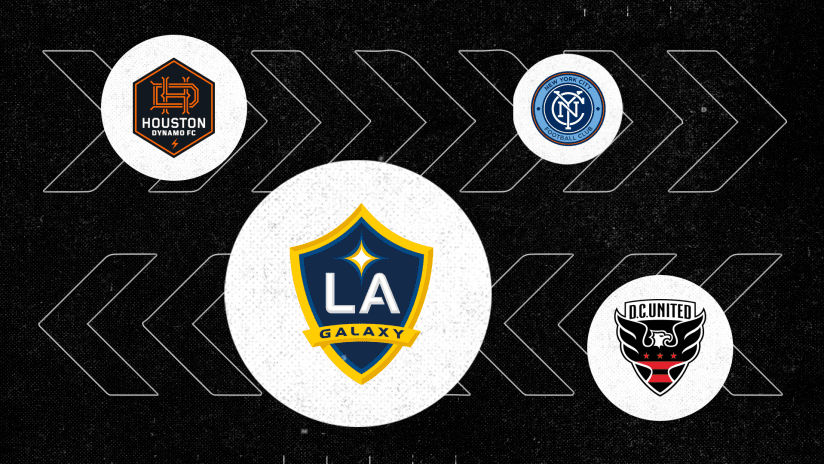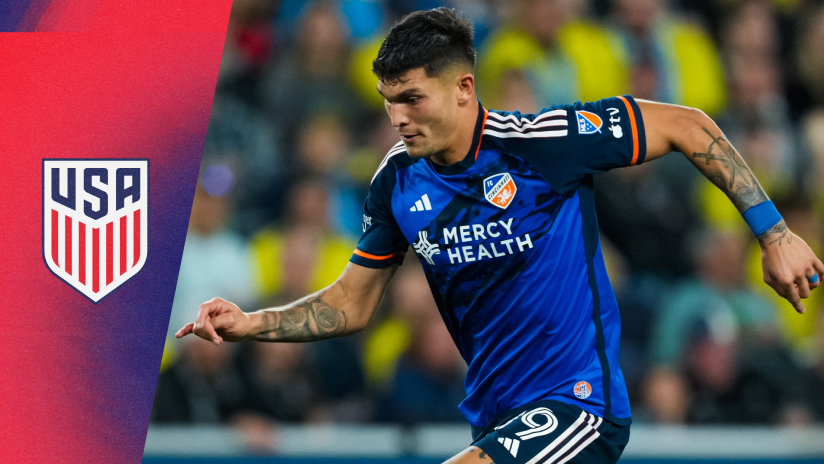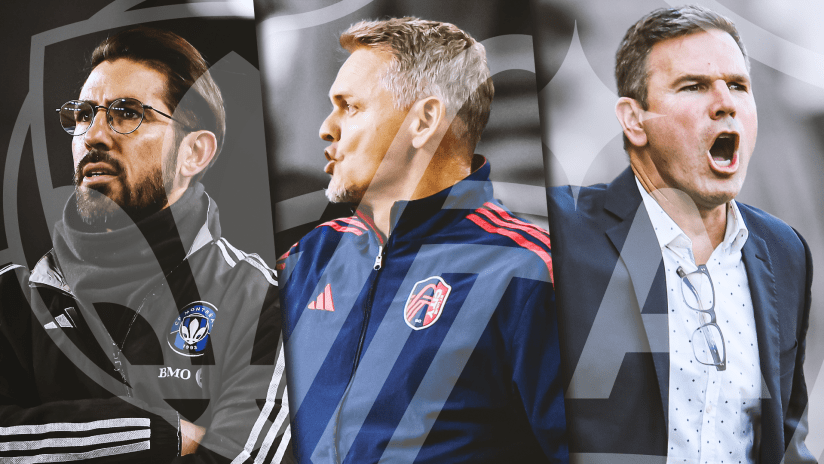Ricardo Pepi had a decision to make. A decision that is deeply personal and complicated, though very public and very much anticipated on both sides of the United States-Mexico border.
An 18-year-old rising star with FC Dallas, Pepi was eligible to represent either Concacaf rival in his international soccer career. And both federations wanted him. Badly.
Pepi was asked questions ad nauseum in recent weeks as the #DualNationalPanic scorched, fending them off effortlessly and professionally as he buried chances in front of goal, with conflicting reports surfacing Wednesday night about which team he’d choose. By the way, he stole the show at the MLS All-Star Game presented by Target by scoring the game-winning penalty.
On Thursday morning, as the US released their roster for next month’s World Cup qualifiers, the answer came: Ricardo Pepi accepted a call-up to represent the United States.
“We’ve been talking to Ricardo long before Mexico has been involved,” USMNT head coach Gregg Berhalter told media on a virtual press conference Thursday. “That’s their prerogative, they have the right to do that. But we let our environment speak for itself, the players speak for themselves. … For us, it’s not really about what Mexico is doing, it’s about what we’re doing.”
Pepi and the United States kick off the final round of qualifying for the 2022 World Cup in Qatar next week, playing three matches at El Salvador (Sept. 2), vs. Canada (Sept. 5) and at Honduras (Sept. 8). This qualifying cycle has 14 matches in total.
Discussion on and the courting of dual-nationals will only intensify in coming years, particularly between the United States and Mexico with so much cultural overlap. Real Salt Lake goalkeeper David Ochoa recently switched to Mexico after representing the United States at youth national team levels, including Olympic qualifying this winter, while LA Galaxy defender Julian Araujo is still deciding whether or not to switch to Mexico after declining a USMNT call-up this summer because he wasn’t ready to make a commitment. Araujo’s Galaxy teammate, midfielder Efrain Alvarez, opted for Mexico after spending time with both the US and Mexico at youth levels.
“I think the connection is really important,” Berhalter said. “Players need to feel connection to the United States, to our team, to our staff. That makes it easier. So for us, it’s about creating those connections and evaluating how they feel about playing for the United States. What the United States means to them. All of those things are really important. The heritage of a player is something we respect. When a player is a dual-national, we respect they have ties to the other country as well. For us, it’s about creating an environment players want to be in.”
The current US squad contains a few high-profile dual-nationals, including Sergino Dest and John Brooks. Yunus Musah, who filed a one-time switch from England last year, misses out due to injury.
Pepi was born in the culturally diverse Texas city of El Paso and had family in Ciudad Juarez. He talks of crossing the border weekly in his childhood to see friends and family. Ultimately, though, he chose to represent the United States while still feeling love to his Mexican heritage.
“This country has given me and my family a home, and endless possibilities to achieve my dreams,” Pepi said in a personal statement he released on social media. “It has supported me, it has lifted me up and it has shown me when you work hard you will be rewarded. I am very proud to be called in to help the USMNT qualify for the 2022 World Cup. This means the world to me, I will give everything for you all.”
Pepi added in an interview with the FC Dallas club site: “I am a Mexican-American and that I am super proud of my heritage. It’s something that will never be taken away from me, no matter what national team I play for."
Pepi’s decision underlined the fact that each case will be deeply unique to the player.
It isn’t just about fit and opportunity with each program on the field, though that certainly plays a role – it’s about connections. It’s about the indescribable and unquantifiable feelings towards each country a player is able to represent.
“It’s about the players choosing for themselves,” Berhalter said. “I try to be upfront and honest to the player, I want them to make a decision they’re comfortable with. Sometimes, they’re going to choose to represent another country and sometimes they choose to represent us. We have to live with that, but we try to put our best foot forward and let our environment and players speak for themselves.”
Shifting away from the big picture, futuristic view and getting back to the micro: Pepi could be a very useful addition to Berhalter’s squad in the three upcoming World Cup qualifying matches. Center forward is a position that’s wide open and the striker has a real chance at earning minutes.
The other center forwards on the roster are Norwich City’s Josh Sargent and Young Boys’ Jordan Pefok. Lille’s Tim Weah can also play through the middle, but it’s expected that Sargent, Pefok and Pepi will be battling for those minutes.
“When I look at his skill set, he’s a guy who can contribute,” Berhalter said. “It’s going to be about seeing how we can use him in games, how he can adapt to this level. But we’re certainly not afraid of his age because he’s a quality player.”













